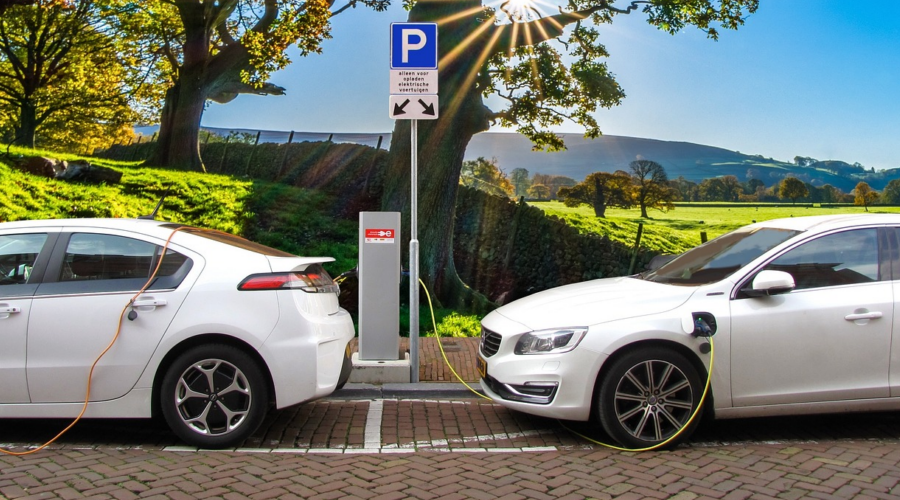The transportation industry is undergoing a significant transformation as the world seeks sustainable alternatives to fossil fuels. Two leading contenders in this race are electric vehicles (EVs) and hydrogen fuel cell vehicles (HFCVs). Both technologies offer promising solutions, but which one truly represents the future of sustainable transportation? Let’s explore the advantages and challenges of each to understand their potential impact.
The Rise of Electric Vehicles
Electric vehicles have gained substantial popularity over the past decade, driven by advancements in battery technology and increasing environmental awareness.
Advantages of Electric Vehicles
-
Efficiency and Performance
- EVs convert over 77% of the electrical energy from the grid to power at the wheels, making them highly efficient compared to internal combustion engines.
- They offer instant torque, resulting in smooth and rapid acceleration.
-
Environmental Impact
- EVs produce zero tailpipe emissions, significantly reducing air pollution in urban areas.
- When powered by renewable energy sources, they can further minimize their carbon footprint.
-
Infrastructure and Accessibility
- The charging infrastructure for EVs is expanding rapidly, with many countries investing in public charging stations and incentives for home chargers.
- Major automotive companies are investing heavily in EV technology, increasing vehicle availability and variety.
Challenges Facing Electric Vehicles
-
Battery Limitations
- The production of lithium-ion batteries involves resource-intensive processes, raising concerns about sustainability and environmental impact.
- Battery disposal and recycling remain significant challenges, although ongoing research aims to address these issues.
-
Range Anxiety
- Despite improvements, range anxiety persists as a concern for potential buyers, especially in regions with limited charging infrastructure.
- Long charging times compared to refueling conventional vehicles can be inconvenient for some users.
The Promise of Hydrogen Fuel Cell Vehicles
Hydrogen fuel cell vehicles offer a different approach to clean transportation, using hydrogen gas to produce electricity through a chemical reaction.
Advantages of Hydrogen Cars
-
Refueling Speed and Range
- HFCVs can be refueled in a matter of minutes, similar to traditional gasoline vehicles, and offer a range comparable to conventional cars.
- This makes hydrogen cars particularly appealing for long-distance travel and commercial use.
-
Environmental Benefits
- Hydrogen fuel cells emit only water vapor, making them an excellent option for reducing air pollution.
- Hydrogen can be produced from various renewable resources, including water and biomass, offering potential for sustainable production.
-
Energy Storage and Versatility
- Hydrogen can be stored and transported easily, offering flexibility in energy supply and distribution.
- It can also be used in sectors beyond transportation, such as industrial processes and grid energy storage.
Challenges Facing Hydrogen Cars
-
Infrastructure Development
- The hydrogen refueling infrastructure is still in its infancy, with limited availability compared to electric charging stations.
- Significant investment is required to build a comprehensive network to support widespread adoption.
-
Production and Cost
- Producing hydrogen in an environmentally friendly and cost-effective manner remains a challenge.
- Current methods, such as steam methane reforming, have a high carbon footprint, although green hydrogen production through electrolysis is gaining traction.
Comparing the Two Technologies
Energy Efficiency
Electric vehicles are currently more energy-efficient than hydrogen cars, primarily due to the direct use of electricity. Hydrogen cars lose efficiency during the production, storage, and conversion processes. However, advancements in hydrogen production and storage technologies could narrow this gap over time.
Environmental Impact
Both EVs and HFCVs offer significant environmental benefits over traditional vehicles. Electric vehicles have the edge when charged with renewable energy, but hydrogen cars are advantageous in scenarios where rapid refueling and longer ranges are necessary.
Infrastructure and Adoption
The existing infrastructure heavily favors electric vehicles, with more charging stations and a broader market presence. However, hydrogen’s potential for rapid refueling and diverse applications could drive future investment and development.
Cost Considerations
Electric vehicles have seen a decrease in costs due to advancements in battery technology and increased production scale. Hydrogen cars, on the other hand, face higher initial costs due to expensive fuel cell technology and limited production.
The Future of Sustainable Transportation
Both electric and hydrogen vehicles have roles to play in the future of sustainable transportation. The choice between them may depend on specific use cases, regional infrastructure, and advancements in technology.
The Role of Policy and Innovation
Government policies and incentives will play a crucial role in shaping the future of both technologies. Investment in research and development, coupled with supportive regulations, can accelerate the adoption of clean transportation solutions.
A Hybrid Approach
A hybrid approach, utilizing both electric and hydrogen technologies, may offer the most comprehensive solution. Urban areas might benefit more from electric vehicles due to short distances and existing infrastructure, while hydrogen cars could serve long-haul and industrial applications.
Conclusion
The journey towards sustainable transportation is complex, with both electric and hydrogen vehicles offering unique advantages and challenges. As technology evolves and infrastructure develops, these two solutions can coexist, complementing each other to create a cleaner, more sustainable future for transportation.







